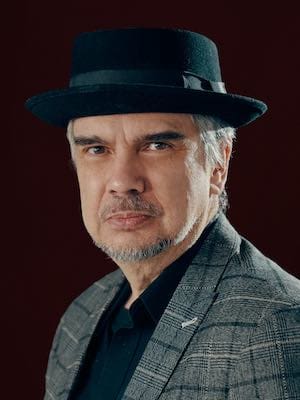The nation is in the midst of struggling to find a solution to a national health care system that continues to be beyond the means of average Americans.
As I write these words, many congressional factions representing different ideological perspectives or special interest groups are attempting to find common ground. Within the background noise, all sides in this debate fill the airwaves with rhetoric based on misinformation.
I have no doubt that a health care bill will eventually be passed by Congress and signed by the president. I also have no doubt that whatever that legislation looks like – whether it be crafted by liberal Democrats, blue-dog Democrats or conservative Republicans – it will do little in providing the American public affordable health care. Why? Because no politician has yet to raise the internal contradiction of our present health care program – a contradiction that will prevent the best intentions of Congress from reaching their desired goals.
Why is it that for many within the United States, the quality of health care ranges from poor to non-existent? This is a phenomenon disproportionately experienced by the poor and people of color although in the past few years many middle-class whites are rapidly joining their ranks.
The reason is that our present-day health care system is structurally designed along a neoliberal philosophy. In other words, health care is a profit-making venture. This is the white elephant in the room our politicians and the general public are ignoring. The purpose of healing is not to restore health; rather, the purpose of healing is to make a profit.
And for anyone to question this philosophical underpinning is to risk being labeled a socialist. Hence, few politicians – if any – with an eye at the next election cycle are willing to ask the question with which we have avoided wrestling: Are affordable health care and profit-making exclusive?
If we decide that health care should be provided through so-called “free” market forces, then it is moral for an insurance company to refuse insuring those individuals who provide a higher risk of accruing medical expenses, or drop individuals from coverage if they get ill, or refuse the treatment recommended by the patient’s physician because the cost outweighs profit.
If we decide that health care should turn a profit, then it is ethical when pharmaceutical companies charge whatever the market can bear for life-saving medicine or provide donations (briberies?) through Political Action Committees (PACs) to politicians that would legislate against preventing the same medicine sold cheaper in other countries to be sold in the U.S.
If we truly take such a libertarian stance concerning the health profession, we should be totally satisfied with our present system where healing is available for the healthy or the wealthy. Our present health care system is based on the capitalist principle that making money takes precedence over healing. To complain about the unaffordability of health care betrays the ideology and rhetoric we profess.
Rather than philosophically questioning the principles upon which we, as a society, determine who gets to live and who gets to die due to who receives and who doesn’t receive health care, we instead are attempting to reform a system that is beyond reform, a system whose very purpose is to make money and thus must inherently remain unattainable to large segments of the population.
Jesus tells us that no person can serve two masters. Nevertheless, that is exactly what we are trying to do with the present legislation making its way through Congress – heal all who are ill and make money. Such a divided house will never stand.
There are areas within society when principles of entrepreneurship may be best for a society, and likewise, there are areas where a more communal approach is needed. I am convinced that only a communal approach to health care (yes, I’ll say it, socialized medicine) will provide the greatest number more affordable health care than our present system is able to do, even after it is reformed.
If we claim that there exists a basic human right to good health, then we must at least have the conversation that determines under which economic structures health care should be framed. I am deeply concerned that we are refusing to have this conversation. We must ask if humans can expect their governments not to impose upon them conditions that can lead to ill health, if not death.
In fact, it could be argued that when this occurs, Jesus’ promise to provide an abundant life is undermined as more and more Americans die from lack of adequate care or go bankrupt trying to pay for a health care they simply could not afford. Americans desperately need a new vision. Unfortunately, when it comes to health care, we remain myopic.
Miguel A. De La Torre is director of the Justice and Peace Institute and associate professor of social ethics at Iliff School of Theology in Denver.
Professor of Social Ethics and Latinx Studies at Iliff School of Theology in Denver, Colorado, and a contributing correspondent at Good Faith Media.

